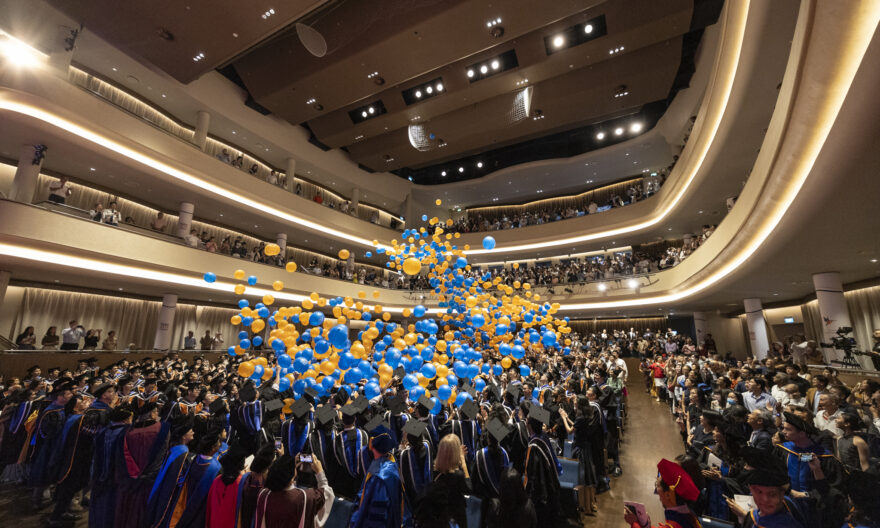Yale-NUS College students and alumni participate in climate change negotiations at COP28
Students and alumni participate in the annual United Nations conference to deepen their understanding of climate action
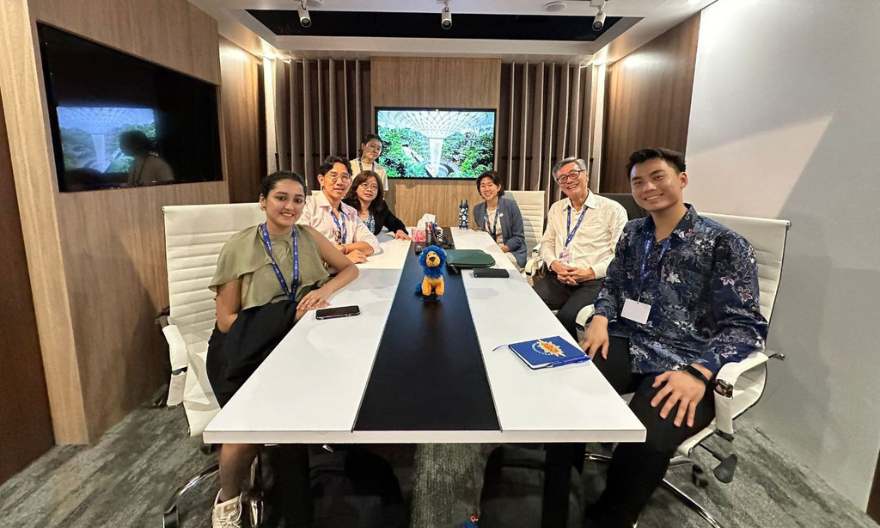
In December 2023, several Yale-NUS College students and alumni participated in the 28th edition of the United Nations Climate Change Conference (COP), an annual conference that brings together world leaders, politicians, and changemakers to agree on policies to limit global temperature rise and adapt to impacts caused by climate change.
The National University of Singapore (NUS) has been accredited by the UN Framework Convention on Climate Change (UNFCCC) as an observer organisation of UNFCCC COP meetings since 2014, and members of the NUS community have attended previous COP as official observers. This year’s COP meeting, referred to as COP28 and held in Dubai, United Arab Emirates, was joined by eight members of the Yale-NUS community comprising Tan Yock Han (Class of 2025); Stanley Tan (Class of 2024); Leanne Chee (Class of 2024); Hannah Ng (Class of 2024); Rinko Kawamoto (Class of 2024); Max Han (Class of 2024); Ning Yiran (Class of 2023); and Jay Wong (Class of 2021).
To learn about the experience of the students who participated in this year’s COP meeting, Stanley Tan interviewed fellow delegates Leanne, Yock Han, and Hannah.
Which programme or event at COP28 did you find the most interesting?
Hannah: I had the opportunity to shadow Singapore’s negotiators, allowing me to see how diplomacy and politics shape the outcomes of decisions at COP28. It was intriguing to learn how the final decisions could be accepted or abandoned through the addition or removal of a single word or phrase.
Leanne: I attended a panel titled Climate Damage of Russia’s war in Ukraine, which highlighted the current knowledge gap we have about environmental damage arising from this armed conflict. It was both heartbreaking and enlightening to listen to how people in the environmental space (non-governmental organisations or NGOs, academia and public) attempt to use international law as a means of supporting Ukraine.
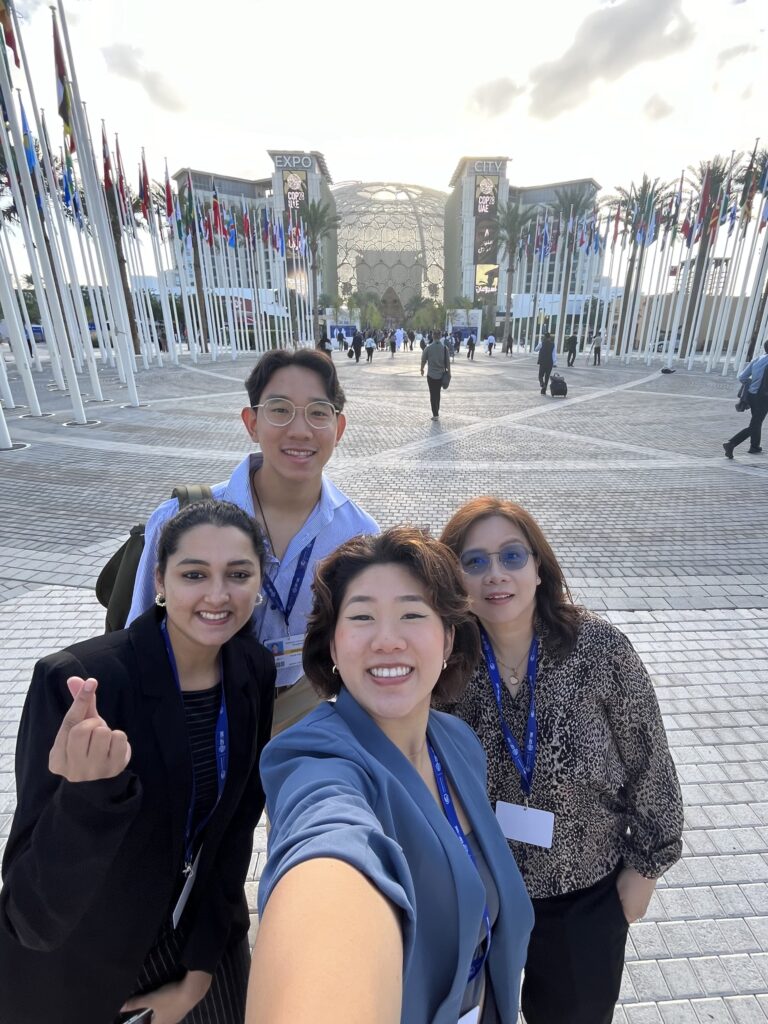
How has your understanding of climate change and/or climate change solutions changed?
Yock Han: Besides witnessing climate negotiations, my time in Dubai allowed me to explore the grassroots aspect of climate action. I found myself drawn to discussions of youth empowerment and the inclusion of marginalised voices such as those from indigenous or Global South communities. From these conversations, I’ve realised that equitable climate action must critically encompass these elements.
Hannah: I spent time studying and processing the specific policy and political mechanisms, as well as their impact on people. I have gained so much more knowledge on international climate policy and politics, and this experience has reaffirmed the importance of meaningful representation in climate policy.
Leanne: While the UNFCCC COP meeting is a very slow and imperfect mechanism for climate action, another value of these meetings is the aggregation of speakers, NGOs, academics, and other attendees from around the world to meet and exchange ideas.
How has the education at Yale-NUS College helped you in pursuing this opportunity?
Yock Han: The Environmental Studies programme has helped me establish my personal ecological philosophy. The classes have also provided me with an interdisciplinary and global perspective on sustainability-related issues, enabling me to engage in environmental dialogues at the international level.
Hannah: Yale-NUS gave me the tools to think critically about environmental action. For example, I observed how politics, internal discourses, and differing worldviews obstructed impactful language from being implemented into COP texts.
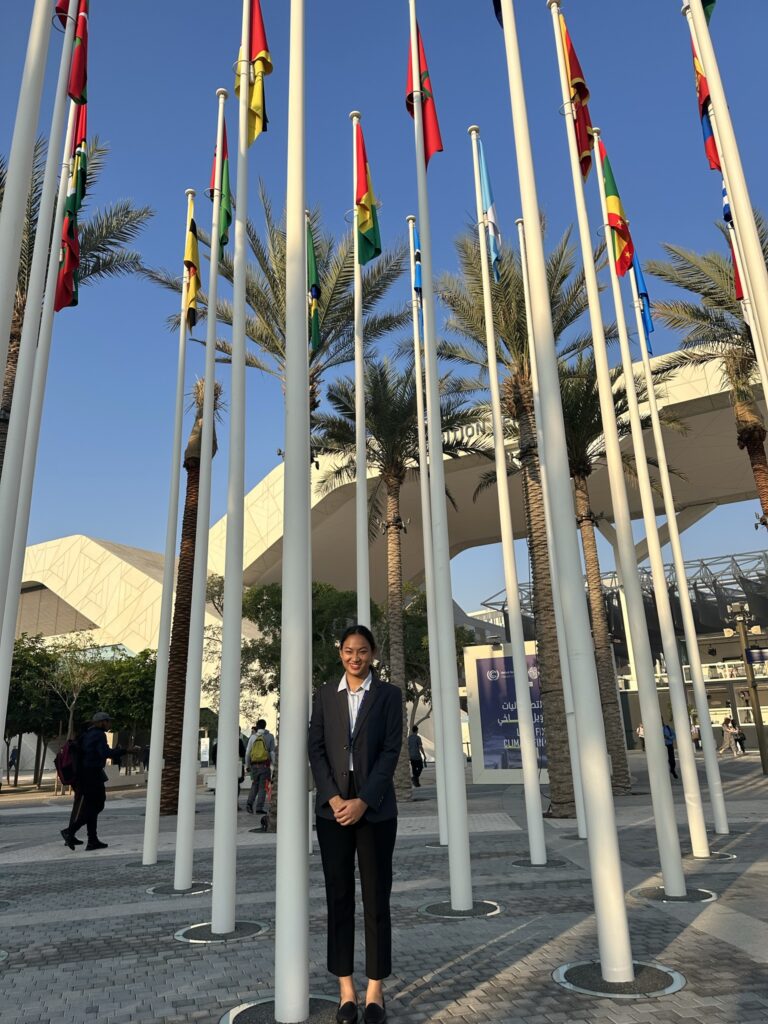
What kind of impact do you hope to make after attending COP28?
Hannah: I plan to share my insights generously to allow more people to understand COP process and their impact on the societies we live in, especially to make decision-making spheres more accessible. I will also continue to advocate for meaningful representation, particularly of youth and women, in Singapore’s COP delegation.
Yock Han: Looking ahead, regardless of which sector within the sustainability industry I pursue post-graduation, I will be sure to avoid thinking in silos, and I hope to remember that environmental sustainability extends beyond Singapore’s shores and impacts countries unequally.
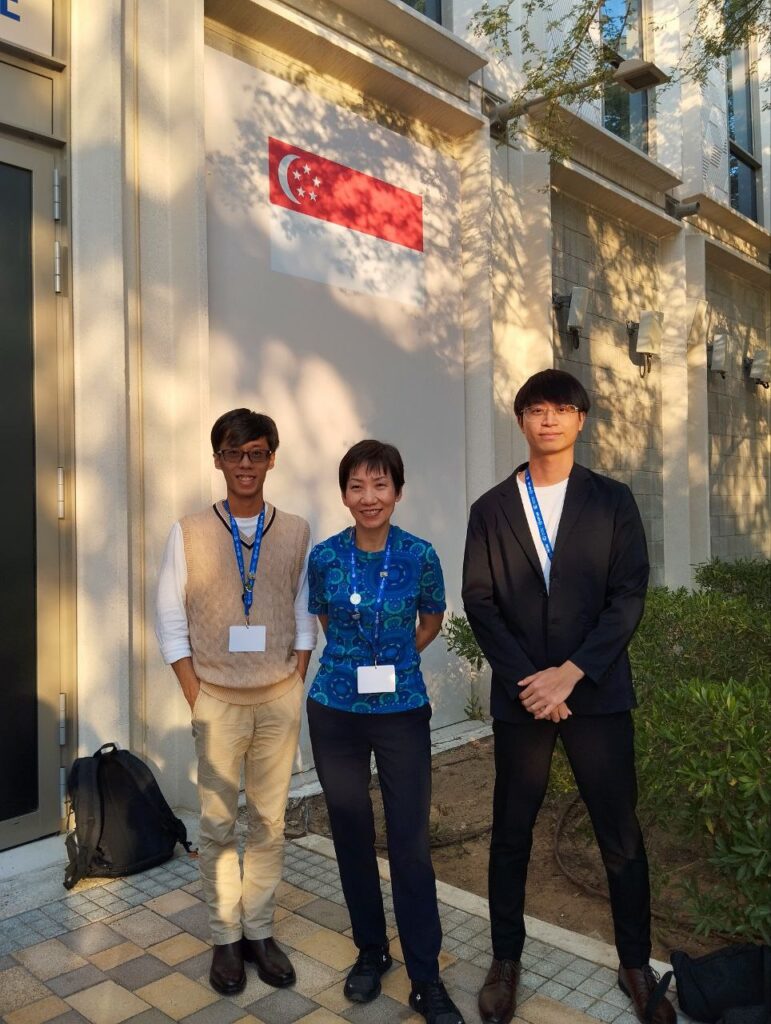
What advice do you have for youths who wish to engage with climate change solutions or attend COP?
Leanne: COP is a huge opportunity to meet a global community of like-minded people, no matter where you lie on the spectrum of environmental issues and opinions. Strongly opinionated climate activists, passionate youth, and indigenous peoples attended COP alongside politicians and private sector players – the presence of a diverse range of voices was a hugely inspirational learning experience!
Hannah: Engage policymakers, join environmental communities working on ground-up projects, and take breaks if you need to. The COP process is complicated, at times disheartening and disempowering, but we must continue to engage each other and those in positions of power in constructive ways.
Yock Han: I think the best way to start is with baby steps. This can be through many different avenues – volunteering at EcoPlanet’s recycling drive, attending a Rector’s Tea session on environmental issues, or engaging in conversations with passionate environmentalists. We cannot under-estimate the importance of small-scale individual actions that build confidence and momentum to scale up our work!



